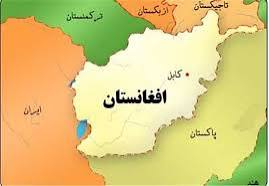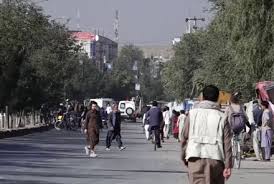Lack of security in Afghanistan
The lack of security in Afghanistan is one of the basic and complex issues in this country, which has a wide impact on people’s lives, economy, development, and social stability. Some of the factors and consequences of the lack of security in Afghanistan are:
-
Impact on people’s lives: Lack of security leads to fear and worry among people and limits their movement and daily activities. This situation can lead to a decrease in the quality of life and stress and anxiety in the society.
-
Impact on the economy: Lack of security has many effects on the country’s economy. This situation can reduce investments, restrict trade, reduce production, and increase unemployment and poverty. Lack of security scares investors and businesses and may lead to economic stagnation.
-
Effect on development: Lack of security has negative effects on the country’s development process. Due to the existence of security instability, many basic infrastructures such as ports, roads, schools, hospitals and manufacturing and industrial infrastructures may suffer and slow down the development of the country.
-
Impact on regional and international security: The lack of security in Afghanistan can have bitter effects on regional and international security. The existence of terrorist groups and border insecurity can threaten regional and global security.
In general, the realization of security in Afghanistan requires extensive domestic and international efforts, settlement and political agreements, economic development, and strengthening of the security and judicial system. These things are needed as a long-term perspective to improve the conditions of Afghanistan.

Migration of Afghans due to lack of security
Migration of Afghans due to lack of security is one of the serious and worrying consequences of security instability in Afghanistan. These migrations are very complex and affect the lives of people and communities, and some of its factors are:
-
Fear of security risks: The lack of security and the existence of security threats such as terrorism, armed battles, violence and social instability make people look for shelter in safer and more stable areas abroad.
-
Effect on family life: Many families in Afghanistan are worried because of insecurity and threats to their lives and the safety of themselves and their children. This can encourage them to decide to emigrate and look for better living conditions abroad.
-
Humanitarian crisis and destruction of infrastructure: Security instability can lead to humanitarian crisis and destruction of basic infrastructure such as schools, hospitals, roads and communication networks. This situation can create a lot of pressure for people and force them to flee and migrate.
-
Loss of hope for the future: Many Afghans migrate in search of better opportunities in other countries due to insecurity and lack of hope for the economic and social future in their country.
-
Trying to ensure the safety of the family: Some people immigrate because of trying to ensure the safety of their family and avoid risks caused by insecurity.
The migration of Afghans due to the lack of security is a complex and multifaceted issue that requires serious political, economic and social approaches to solve it. Establishing security and stability in Afghanistan, improving infrastructure, creating economic and social opportunities, and supporting sustainable development can help reduce forced migration and improve people’s living conditions in their own country.

How is security during the Taliban regime?
Security under Taliban rule in Afghanistan is very complex and its effects on individuals and society are diverse. This issue should be investigated by considering different factors and different experiences of people in different regions of the country. At this time, the security in Afghanistan has been in a special situation that can be examined from several points of view:
-
Public order and urban security: In some areas under the control of the Taliban, public order and urban security may be strengthened due to the rule of the Taliban in some cities and regions. At the same time, in some other areas, security may decrease due to armed conflicts and security instability.
-
Restrictions on social and cultural activities: Taliban rule has led to a number of serious restrictions on social and cultural activities, including restrictions on women’s rights, public culture, and the permission to hold music and theater.
-
Impact on the economy and livelihood security: The security situation during the Taliban regime may have a direct impact on the economy and livelihood of people. Prohibitions and restrictions on trade and business may lead to negative developments in the economic sector.
-
Impact on regional and international security: The Taliban government can have an impact on regional and international security, especially in relation to humanitarian crises, terrorism, and border insecurity.
In general, the security situation during the Taliban regime is very dynamic and variable and may vary depending on the region and specific conditions. In order to better understand the security situation, it is important to consider and review the opinions and experiences of local people and official reports.